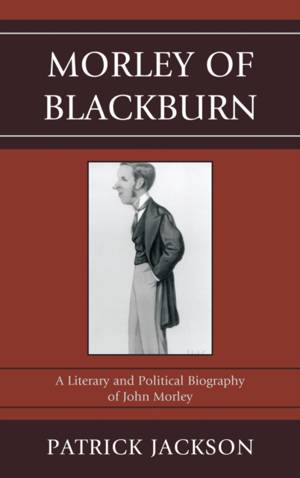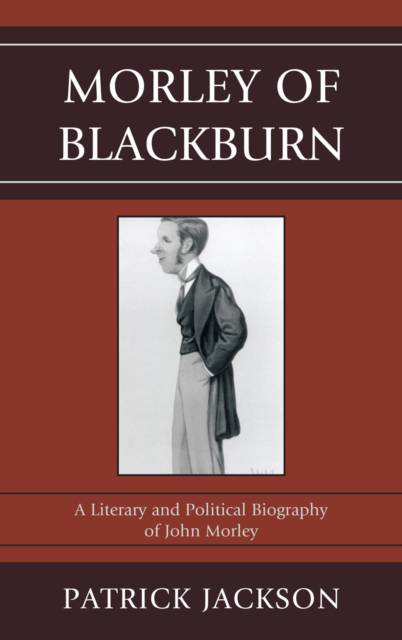
- Afhalen na 1 uur in een winkel met voorraad
- Gratis thuislevering in België vanaf € 30
- Ruim aanbod met 7 miljoen producten
- Afhalen na 1 uur in een winkel met voorraad
- Gratis thuislevering in België vanaf € 30
- Ruim aanbod met 7 miljoen producten
Zoeken
Morley of Blackburn
A Literary and Political Biography of John Morley
Patrick Jackson
Hardcover | Engels
€ 296,95
+ 593 punten
Omschrijving
This literary and political biography of John Morley, famous in the late nineteenth and early twentieth centuries as an editor, writer, and statesman, utilizes diaries, letters and journals that were previously unavailable to the public.
Specificaties
Betrokkenen
- Auteur(s):
- Uitgeverij:
Inhoud
- Aantal bladzijden:
- 584
- Taal:
- Engels
Eigenschappen
- Productcode (EAN):
- 9781611475340
- Verschijningsdatum:
- 18/05/2012
- Uitvoering:
- Hardcover
- Formaat:
- Genaaid
- Afmetingen:
- 155 mm x 231 mm
- Gewicht:
- 952 g

Alleen bij Standaard Boekhandel
+ 593 punten op je klantenkaart van Standaard Boekhandel
Beoordelingen
We publiceren alleen reviews die voldoen aan de voorwaarden voor reviews. Bekijk onze voorwaarden voor reviews.







